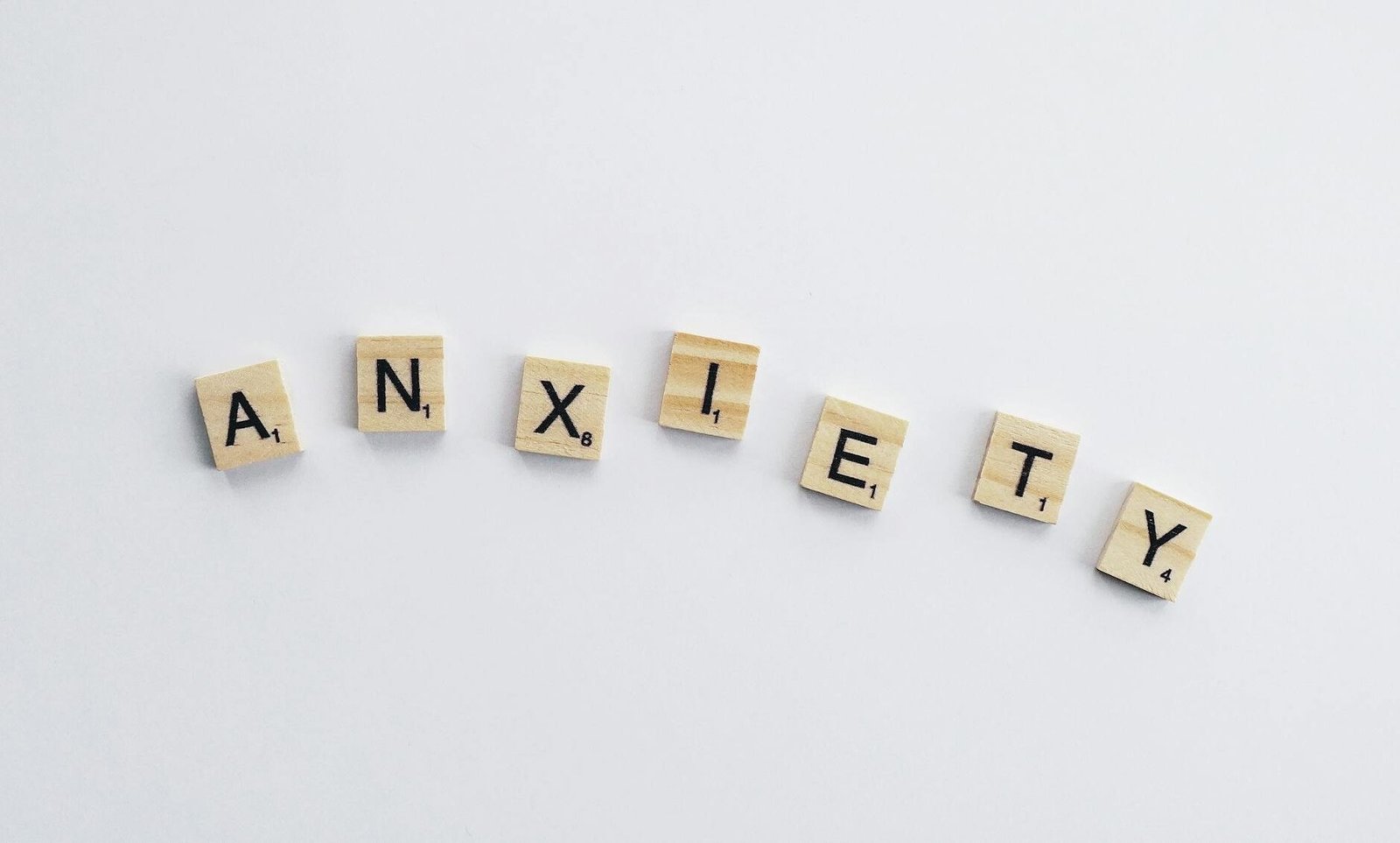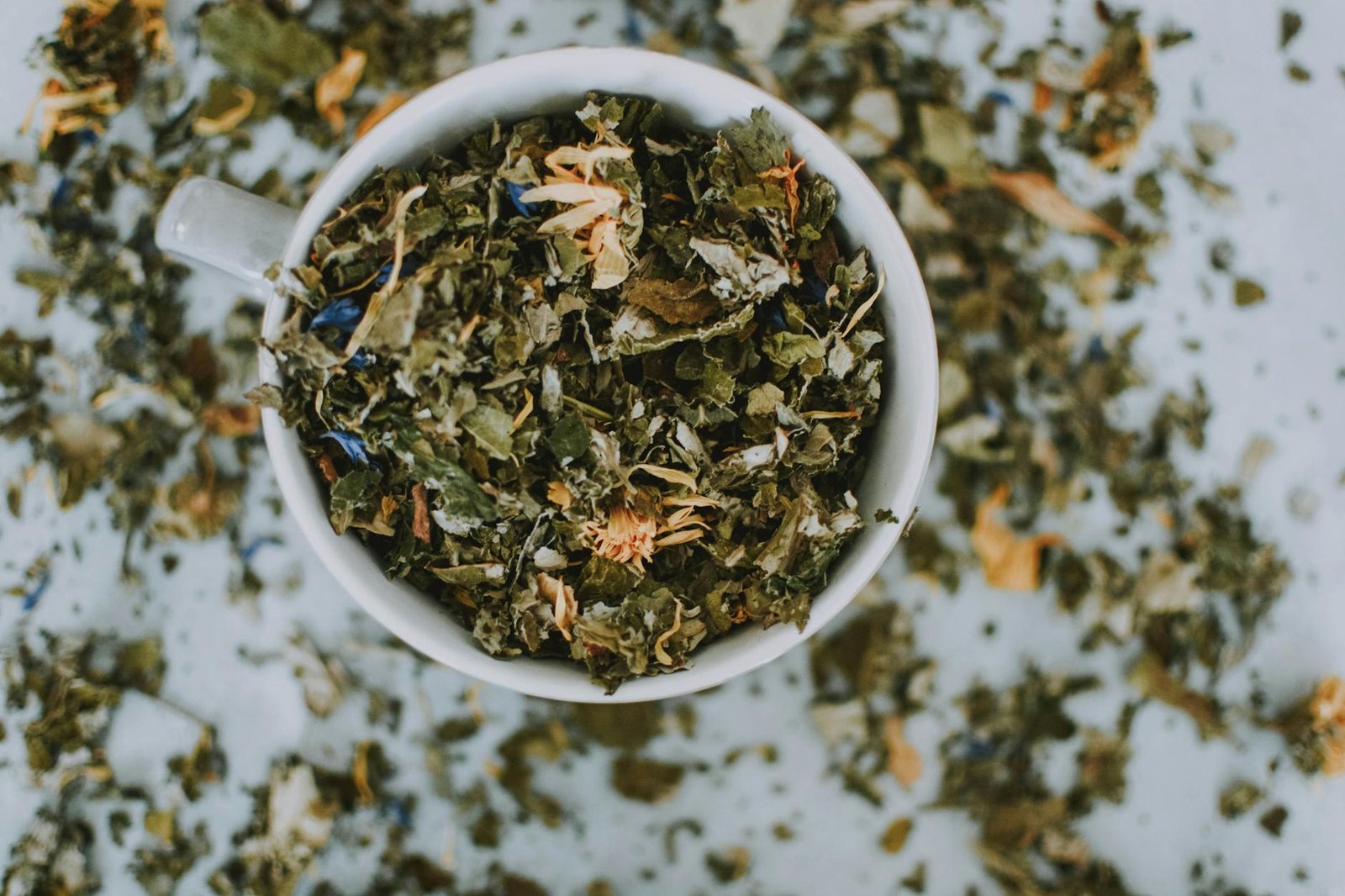Understanding Anxiety: Causes and Symptoms

Anxiety is something most of us experience at some point in life. It’s that overwhelming feeling of worry or nervousness, often out of proportion to the actual situation. But what really causes anxiety, and how can you recognize it in yourself? Let’s break it down so you can better understand what might be going on and explore options like natural anxiety relief.
What is Anxiety?
Anxiety is a natural reaction to stress. It’s your body’s way of preparing you to face a challenge or danger, often called the “fight-or-flight” response. While this is helpful in some situations, chronic anxiety can become a problem. Instead of going away after the stressful event, it sticks around, making daily life harder to manage. You may feel tense, restless, or even find it difficult to concentrate.
Anxiety isn’t just a mental state—it can affect your body, too. You might experience headaches, a racing heart, or even digestive issues. This is because anxiety triggers the release of stress hormones like cortisol, which can throw your body out of balance. Luckily, there are ways to soothe both your mind and body, such as natural anxiety relief techniques, which we’ll touch on later.
Learn more about Anxiety here.
Common Causes of Anxiety
You’re not alone if you find yourself wondering, “Why am I feeling so anxious?” There’s no single cause of anxiety, and it often results from a combination of factors. One major cause is stress. Whether it’s work, relationships, or financial issues, prolonged stress can trigger anxiety.
Genetics can also play a role. If anxiety runs in your family, you may be more prone to it. Certain medical conditions, such as thyroid problems, can mimic the symptoms of anxiety, so it’s essential to rule those out.
Another factor is your environment. If you’re in a high-pressure or unstable situation, such as an unhealthy relationship or demanding job, anxiety is more likely to creep in. Even your diet can affect your mood—too much caffeine or sugar can heighten anxiety symptoms. Identifying these triggers is the first step to understanding how to cope and seek natural anxiety relief.
Recognizing Anxiety Symptoms
The tricky thing about anxiety is that it shows up in different ways for different people. Some experience physical symptoms, like sweating, shaking, or shortness of breath. Others may have emotional signs, like constant worrying or a sense of impending doom.
You might also notice behavioral changes. Avoiding social situations, becoming easily irritated, or overthinking even simple decisions are all signs of anxiety. If you find yourself frequently feeling on edge, it could be more than just stress—it could be anxiety.
In more severe cases, anxiety can lead to panic attacks. These are sudden episodes of intense fear, usually accompanied by symptoms like a pounding heart, chest pain, or dizziness. While they are alarming, they are not life-threatening. Still, it’s important to seek help and explore remedies, including natural anxiety relief, to prevent these episodes from becoming frequent.
How Can You Manage Anxiety?
If any of this sounds familiar, don’t worry—there are plenty of ways to manage anxiety. The key is finding what works best for you. You might find relief through relaxation techniques, exercise, or even breathing exercises. Some people also benefit from natural anxiety relief methods like herbal supplements, essential oils, or mindfulness practices.
The goal is to create a balance where anxiety doesn’t control your life. Identifying the causes and symptoms early can help you stay ahead of it, leading to a more relaxed, healthier mindset.
Herbal Remedies and Supplements for Natural Anxiety Relief
If you’ve ever felt overwhelmed by stress or worry, natural remedies might be the calming answer you’re looking for. Many herbs and supplements are known for their soothing effects on both mind and body. Let’s explore some of the best options for natural anxiety relief, so you can find what works best for you.

Chamomile: The Soothing Flower
Chamomile is one of the most popular herbs for anxiety relief. You’ve probably heard of chamomile tea, right? This flower is famous for its calming properties. It can help reduce stress and improve sleep, both of which are crucial for managing anxiety. You can enjoy it in tea form, take it as a supplement, or even use chamomile essential oil in a diffuser. It’s like a gentle nudge to your nervous system, reminding you to relax.
Valerian Root: Nature’s Sedative
Valerian root has been used for centuries as a natural sleep aid, but did you know it’s also great for anxiety? This powerful herb works by increasing levels of a neurotransmitter called GABA, which helps you feel calm. Valerian root is often found in capsules or tinctures, but it’s strong, so it’s best to take it before bedtime. If you’re struggling with restlessness or insomnia due to anxiety, valerian root could be the natural anxiety relief you’ve been searching for.
Passionflower: Calm in a Bottle
Passionflower is another herb that can take the edge off anxiety. Known for its sedative effects, it helps relax your nervous system and ease feelings of irritability. Passionflower is commonly taken as a tea or supplement and is ideal for those times when your mind just won’t stop racing. It works well for short-term anxiety relief and can help you stay calm in stressful situations.
Omega-3 Fatty Acids: Brain Boost for Natural Anxiety Relief
Did you know that omega-3 fatty acids can help reduce anxiety symptoms? Found in fish like salmon and sardines, these healthy fats support brain health and reduce inflammation, which can be linked to anxiety. If you don’t eat a lot of fish, omega-3 supplements are a great option. Regular intake has been shown to improve mood and reduce anxiety over time, making it a valuable tool in your natural anxiety relief toolkit.
Magnesium: The Relaxation Mineral
Magnesium is another must-have supplement for calming your mind. Known as the “relaxation mineral,” magnesium helps regulate stress hormones and promotes better sleep. Many people are magnesium-deficient, which can lead to increased anxiety and tension. You can take magnesium as a supplement or even soak in a magnesium-rich bath for double the relaxation benefits. It’s like giving your body the signal to chill out.
Lemon Balm: Fresh and Calming
Lemon balm, a member of the mint family, has been used for centuries to ease stress and promote relaxation. It’s often found in teas or supplements and can help lift your mood while reducing anxiety. The refreshing citrus aroma also helps energize your mind without leaving you feeling jittery. Lemon balm works well as a natural anxiety relief method for both daytime and evening use.
How to Choose the Right Remedy for You
When choosing herbs and supplements for anxiety relief, it’s important to find what suits your lifestyle and body best. Some herbs like valerian root are better for nighttime, while others like omega-3s can be taken daily to support long-term mental health. Start with one remedy, give it some time, and see how your body responds. Natural anxiety relief can take time, but the results are worth it.
Natural remedies can be a fantastic way to manage anxiety, especially if you prefer a gentle, non-pharmaceutical approach. Whether you go for calming teas, supplements, or essential oils, these herbs and nutrients offer a simple way to soothe your mind and body.
Mindfulness and Relaxation Techniques for Natural Anxiety Relief
Dealing with anxiety can feel overwhelming, but incorporating simple mindfulness and relaxation techniques into your daily routine can help. Let’s look at some practical ways to manage anxiety naturally.

Start with Deep Breathing
Deep breathing is one of the easiest ways to reduce anxiety. When you focus on your breath, you bring your mind into the present moment, which helps quiet anxious thoughts. Try this: inhale for four seconds, hold for four, and exhale for four. Repeat a few times, and you’ll notice a calming effect. You can practice this anywhere, even while waiting in line!
Practice Mindful Meditation
Mindfulness meditation is a fantastic tool for natural anxiety relief. It involves focusing your attention on the present moment without judgment. You can start small, with just five minutes a day. Sit comfortably, close your eyes, and focus on your breath or a mantra like “I am calm.” Your mind will wander, but that’s okay. Gently guide it back to your breath. Over time, meditation can help you stay centered and reduce anxiety in stressful situations.
Try Progressive Muscle Relaxation
Progressive muscle relaxation (PMR) is another effective technique for anxiety relief. In PMR, you tense and relax different muscle groups, helping to release physical tension. Start at your feet, tensing your muscles for five seconds, then slowly relaxing them. Move up your body, paying attention to each area. This technique not only eases physical tension but also calms your mind. It’s a great way to wind down before bed.
Use Visualization for Natural Anxiety Relief
Visualization is a powerful relaxation tool that helps you escape from anxious thoughts. Imagine a peaceful place—maybe a quiet beach or a serene forest. Picture the details: the sounds, smells, and colors. Focus on how calm and safe you feel there. This simple exercise can shift your focus from stress to serenity, offering quick anxiety relief.
Incorporate Mindful Walking
Mindful walking is a great way to combine movement with mindfulness. As you walk, pay attention to your surroundings—notice the colors, sounds, and sensations under your feet. Focus on your breath and how your body feels with each step. Walking mindfully can help break the cycle of anxious thoughts and bring you back into the present moment. It’s also a perfect excuse to get outside and enjoy some fresh air.
Use Aromatherapy for Relaxation
Aromatherapy is a natural anxiety relief method that uses essential oils to promote calmness. Lavender, chamomile, and ylang-ylang are popular choices for reducing anxiety. You can use them in a diffuser, apply them to your skin (with a carrier oil), or add them to your bath. These scents trigger relaxation responses in your brain, helping you unwind after a stressful day.
Make Time for Self-Compassion
Practicing self-compassion is a key part of managing anxiety. It’s easy to be hard on yourself when you’re feeling anxious, but treating yourself with kindness is far more helpful. When anxiety strikes, remind yourself that it’s okay to feel this way. Take time for self-care, whether that’s a warm bath, a favorite book, or just some quiet time. Being gentle with yourself can reduce the pressure and help you find calm faster.
Grounding for Relaxation and Natural Anxiety Relief
Grounding promotes a profound sense of relaxation and stress relief, making it an effective natural remedy for combating the pressures of modern-day life. By stimulating the relaxation response in the body, grounding helps to reduce levels of stress hormones such as cortisol, leading to a calmer mental state and a more peaceful sleep environment. This relaxation effect extends beyond sleep, influencing overall well-being by enhancing mood, reducing anxiety, and promoting emotional balance. As a result, individuals who sleep grounded often wake up feeling more refreshed and mentally prepared to face the day ahead.
Natural anxiety relief doesn’t have to be complicated. By adding simple mindfulness practices like deep breathing, meditation, and relaxation exercises into your routine, you can manage anxiety more effectively. The key is to be consistent and find what works best for you. Whether you’re at home, at work, or out and about, these techniques are easy to practice and can help you feel calmer and more centered every day.
The Role of Diet and Exercise in Natural Anxiety Relief & Management
Managing anxiety naturally isn’t just about mindfulness and relaxation—it’s also heavily influenced by your diet and exercise routine. What you eat and how you move can significantly impact your anxiety levels.

Fuel Your Body with Anxiety-Reducing Foods
Certain foods can help ease anxiety. Omega-3-rich foods like salmon, chia seeds, and walnuts have been shown to reduce anxiety. Magnesium, found in leafy greens and almonds, can also promote calmness. Incorporating probiotics from yogurt or kefir supports gut health, which has been linked to improved mood. On the other hand, try to avoid caffeine and processed sugars, which can heighten anxiety symptoms.
Hydrate, Hydrate, Hydrate
Water plays a key role in anxiety management. Dehydration can make you feel more anxious, so stay hydrated throughout the day. Herbal teas, like chamomile, can also provide natural anxiety relief. Plus, they have the bonus of offering a soothing break from your daily stressors.
Exercise Your Way to Calm
Exercise is an effective, natural way to manage anxiety. It releases endorphins, which boost your mood and help reduce stress. You don’t have to run a marathon—simple activities like walking, yoga, or swimming can work wonders. Find something you enjoy so it doesn’t feel like a chore. Regular exercise also improves sleep, which is essential for managing anxiety.
The Power of Movement: Yoga, Pilates, and Stretching
Yoga and Pilates are particularly good for reducing anxiety because they combine physical movement with mindfulness. These practices help calm your mind while improving strength and flexibility. Even simple stretching can release tension in your body and help you relax after a long, stressful day.
Limit Stimulants
Foods and drinks high in caffeine, like coffee or energy drinks, can increase feelings of anxiety. If you’re prone to anxious thoughts, cutting back on caffeine can make a noticeable difference. Opt for decaffeinated alternatives or herbal teas to help keep your nerves steady.
Keep Blood Sugar Levels Steady
Fluctuating blood sugar levels can make you feel jittery and anxious. Eating balanced meals with protein, healthy fats, and complex carbs can help maintain stable blood sugar levels. This helps you avoid the “crash” that can trigger anxiety symptoms.
Supplements for Natural Anxiety Relief
Some supplements can support anxiety management. Omega-3 fatty acids, magnesium, and B vitamins are known for their calming effects. Always talk to a healthcare professional before adding new supplements to your routine to ensure they’re right for you.
Find Joy in Movement
Not everyone loves traditional workouts, and that’s okay! Dancing, gardening, or even playing with your dog can all be forms of exercise. The important thing is to move your body regularly, as it helps reduce anxiety and boosts your overall well-being.
Conclusion
Incorporating natural remedies, mindful practices, diet, and exercise into your routine can significantly help manage anxiety. From herbal supplements to staying hydrated, each step provides a small yet impactful contribution to your mental health. By making conscious choices about what you eat and how you move, you’ll create a healthier, more balanced lifestyle that fosters calmness.
Remember, managing anxiety is a personal journey, and these strategies offer different benefits to everyone. Small, consistent changes in your habits can lead to big improvements, supporting both your physical and mental well-being naturally.


2 thoughts on “Explore Now: Easy Natural Anxiety Relief Solutions”